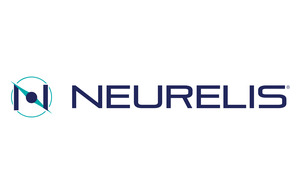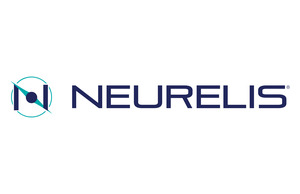- Largest, worldwide epilepsy community gathering will feature a physician presentation on VALTOCO® (diazepam nasal spray) CIV for frequent seizure activity
- Little Angels Service Dogs' seizure alert and response puppies-in-training to appear at Neurelis booth and for onstage demonstrations
SAN DIEGO, Oct. 31, 2022 /PRNewswire/ -- Neurelis is a proud supporter of the 10th Annual Sofie's Journey Epilepsy Awareness Day and Education Expo at Disneyland Resort (EADDL), the largest worldwide gathering of people with epilepsy, their families/care partners, and healthcare providers. The event kicks off with a free Expo on Oct. 31 and Nov. 1, 10:00 a.m. to 5:00 p.m. at the Disneyland Hotel Convention Center. Epilepsy Awareness Day will take place on Nov. 2, at Disneyland Resort.
"EADDL is incredibly special because it is the only event of its kind that unites families living with epilepsy, healthcare providers, and worldwide epilepsy experts to foster empowerment and education," said Neurelis CEO, Craig Chambliss. "We are honored to play a role in this vital event that is so important for the epilepsy community."
EADDL features hundreds of exhibitors, support groups, seizure management devices, service dogs, exhibits, and physicians. Neurelis will sponsor a product theater showcase for its FDA-approved product, VALTOCO® (diazepam nasal spray) CIV, an acute treatment for frequent seizure activity, on Oct. 31 from 10:30 a.m. to 11:00 a.m., Listen and Learn Room 1. The showcase will feature Raman Sankar, MD, PhD, chief of pediatric neurology at the David Geffen School of Medicine, University of California, Los Angeles.
Appearing at Neurelis' VALTOCO exhibit booth are two seizure alert and response puppies-in-training from Little Angels Service Dogs, an internationally accredited, non-profit organization that trains and pairs assistance dogs with disabled recipients. Neurelis is sponsoring their training at Little Angels' Jamul, Calif., location where they are learning to live with and assist a person with epilepsy.
"In addition to being a wonderful source of inspiration for hope, inclusion and patient empowerment in the epilepsy community, EADDL is a great opportunity for people to learn how to work with their healthcare provider to develop a seizure action plan," Chambliss added.
EADDL is part of November's National Epilepsy Awareness Month, which promotes the importance of epilepsy education and awareness, and improving the lives of those impacted by the condition. For more information about EADDL, visit www.epilepsyawarenessday.org and to register for the Expo, click here.
- VALTOCO Presentation by Raman Sankar, MD, PhD, FAAN, FAES: Oct. 31st, 10:30 a.m.-11:00 a.m., Listen and Learn Room #1.
- Disneyland Hotel Convention Center – first floor Fantasy Tour, 1150 West Magic Way, Anaheim, Calif., Oct. 31 and Nov. 1. Check in begins at 9:00 a.m. Doors open at 10:00 a.m.
- Industry-only evening reception on Nov. 1, 6:00 p.m. to 8:00 p.m., Magic Kingdom Ballroom, entry wristband required.
EADDL is the combined effort of one family's thankfulness for their own daughter's recovery (10+ years seizure free) and a united community with a passion for winning the fight against epilepsy. It is operated by the Irvine, Calif.-based, non-profit foundation, Sofie's Journey, to drive epilepsy awareness by bringing together patients, families/caregivers, physicians, advocates, non-profits, services, and the biopharmaceutical industry. EADDL and Sofie's Journey were launched by Candy and Brad Levy, whose daughter Sofie, now 19 years old, underwent surgery in 2013 to remove a part of her brain that caused her seizures. Their mission is to drive epilepsy awareness, the key to overcoming challenges created by epilepsy.
Neurelis, Inc., is a commercial-stage neuroscience company focused on the development and commercialization of therapeutics for the treatment of epilepsy and orphan neurologic disorders characterized by high unmet medical need. In 2020, the FDA approved Neurelis' VALTOCO® (diazepam nasal spray) as an acute treatment of intermittent, stereotypic episodes of frequent seizure activity (i.e., seizure clusters, acute repetitive seizures) that are distinct from an individual's usual seizure pattern in adult and pediatric patients 6 years of age and older. VALTOCO is a proprietary formulation of diazepam incorporating the science of INTRAVAIL®. Intravail's transmucosal absorption enhancement technology enables the noninvasive delivery of a broad range of protein, peptide and small-molecule drugs. In its approval of VALTOCO, the U.S. Food and Drug Administration also granted Neurelis Orphan Drug Exclusivity and recognized VALTOCO's intranasal route of administration as a clinically superior contribution to patient care over the previously approved standard-of-care treatment (a rectal gel formulation of diazepam). For more information on VALTOCO, please visit http://www.valtoco.com/. In addition to VALTOCO, Neurelis is developing NRL-2 for intermittent use to control acute panic attacks, NRL-3 as a noninvasive acute therapy to stop seizures that have progressed to status epilepticus, and NRL-4 as a noninvasive rescue therapy to address the escalation of acute agitation symptoms associated with schizophrenia and bipolar 1 mania in adults. In addition, Neurelis is developing NRL-1049 (previously known as BA-1049), an investigational, pre-clinical stage small molecule Rho kinase (ROCK) inhibitor, for the treatment of cerebral cavernous malformations (CCMS), a rare disorder of the central nervous system (CNS). For more information on Neurelis, please visit http://www.neurelis.com/. For the latest scientific information on VALTOCO, please visit http://www.neurelismedicalaffairs.com/.
VALTOCO® (diazepam nasal spray) is indicated for the acute treatment of intermittent, stereotypic episodes of frequent seizure activity (i.e., seizure clusters, acute repetitive seizures) that are distinct from a patient's usual seizure pattern in patients with epilepsy 6 years of age and older.
WARNING: RISKS FROM CONCOMITANT USE WITH OPIOIDS; ABUSE, MISUSE, AND ADDICTION; and DEPENDENCE AND WITHDRAWAL REACTIONS |
|
• |
Concomitant use of benzodiazepines and opioids may result in profound sedation, respiratory depression, coma, and death. Reserve concomitant prescribing of these drugs for patients for whom alternative treatment options are inadequate. Limit dosages and durations to the minimum required. Follow patients for signs and symptoms of respiratory depression and sedation. |
• |
The use of benzodiazepines, including VALTOCO, exposes users to risks of abuse, misuse, and addiction, which can lead to overdose or death. Abuse and misuse of benzodiazepines commonly involve concomitant use of other medications, alcohol, and/or illicit substances, which is associated with an increased frequency of serious adverse outcomes. Before prescribing VALTOCO and throughout treatment, assess each patient's risk for abuse, misuse, and addiction. |
• |
The continued use of benzodiazepines may lead to clinically significant physical dependence. The risks of dependence and withdrawal increase with longer treatment duration and higher daily dose. Although VALTOCO is indicated only for intermittent use, if used more frequently than recommended, abrupt discontinuation or rapid dosage reduction of VALTOCO may precipitate acute withdrawal reactions, which can be life-threatening. For patients using VALTOCO more frequently than recommended, to reduce the risk of withdrawal reactions, use a gradual taper to discontinue VALTOCO. |
- Hypersensitivity to diazepam
- Acute narrow-angle glaucoma
Benzodiazepines, including VALTOCO, may produce CNS depression. Caution patients against engaging in hazardous activities requiring mental alertness, such as operating machinery, driving a motor vehicle, or riding a bicycle, until the effects of the drug, such as drowsiness, have subsided, and as their medical condition permits.
The potential for a synergistic CNS-depressant effect when VALTOCO is used with alcohol or other CNS depressants must be considered, and appropriate recommendations made to the patient and/or care partner.
Antiepileptic drugs (AEDs), including VALTOCO, increase the risk of suicidal ideation and behavior. Patients treated with any AED for any indication should be monitored for the emergence or worsening of depression, suicidal thoughts or behavior, and/or unusual changes in mood or behavior.
Benzodiazepines, including VALTOCO, can increase intraocular pressure in patients with glaucoma. VALTOCO may only be used in patients with open-angle glaucoma only if they are receiving appropriate therapy. VALTOCO is contraindicated in patients with narrow-angle glaucoma.
VALTOCO is not approved for use in neonates or infants. Serious and fatal adverse reactions, including "gasping syndrome," can occur in neonates and low-birth-weight infants treated with benzyl alcohol-preserved drugs, including VALTOCO. The "gasping syndrome" is characterized by central nervous system depression, metabolic acidosis, and gasping respirations. The minimum amount of benzyl alcohol at which serious adverse reactions may occur is not known.
The most common adverse reactions (at least 4%) were somnolence, headache, and nasal discomfort.
To report SUSPECTED ADVERSE REACTIONS, contact Neurelis, Inc. at 1-866-696-3873 or FDA at 1-800-FDA-1088 (www.fda.gov/medwatch).
Please read full Prescribing Information, including Boxed Warning, for additional important safety information.
Contacts:
Neurelis:
Brittany Bradrick, Chief Financial Officer, +1 858 251 2135
Media:
Erich Sandoval, Finn Partners, + 1 917 497 2867
SOURCE Neurelis, Inc.

WANT YOUR COMPANY'S NEWS FEATURED ON PRNEWSWIRE.COM?
Newsrooms &
Influencers
Digital Media
Outlets
Journalists
Opted In






Share this article